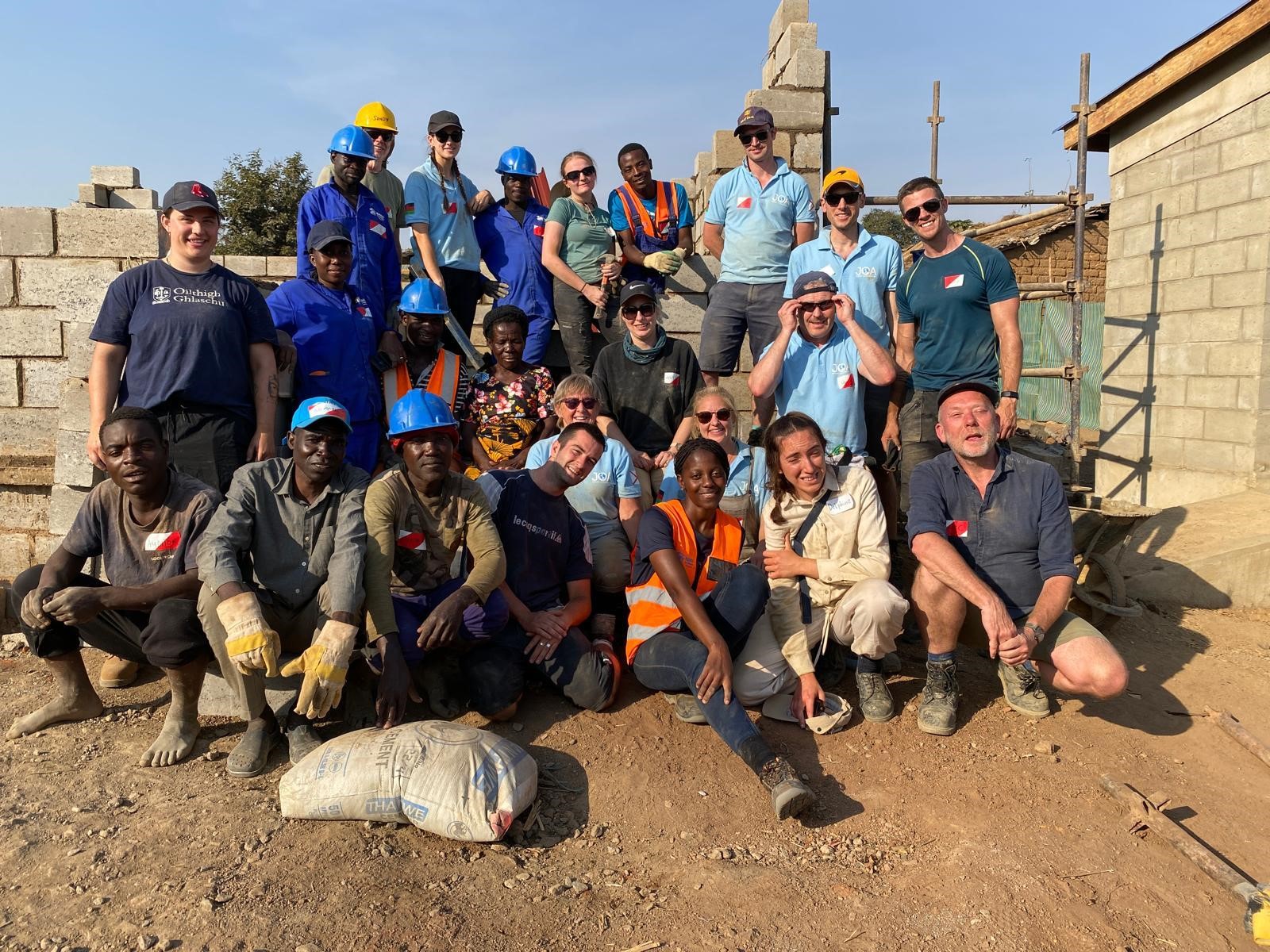Responsible volunteering ensures that your efforts support the long-term needs of local communities, respecting their autonomy and culture, and working in ways that are genuinely helpful. One of the best ways to ensure you’re volunteering responsibly is by taking part in a programme that follows the Global Volunteering Standard, a framework that ensures ethical practices and meaningful impact and this is something that Jersey Overseas Aid (JOA) ensures is at the heart of its volunteering programme through our Community Work Projects. Here's why community-led projects are crucial, how volunteers can make a real difference, and how the Global Volunteering Standard teaches us about volunteering in the right way.
Why Community-Led Projects Matter
At the core of responsible volunteering are community-led projects, initiatives that are shaped, driven, and owned by local people. These projects are the opposite of “voluntourism”, where good intention can go misplaced on projects that seek to solve problems from the outside, rather than being developed with community voice and needs at their centre. Community-led projects are different because they allow local people to identify their own needs and work towards solutions that make sense for them.
Why is this approach so important?
-
Long-Term Impact: When local people lead, projects are more likely to be sustainable because they give agency to community members to address the needs that the they themselves have prioritised.
-
Empowerment: Communities gain skills and confidence through managing their own development, over time reducing reliance on outside support.
-
Cultural Sensitivity: Local people know what works best in their cultural and social context, ensuring that solutions are respectful and appropriate.
How can Volunteers make a real difference?
Volunteers have an important role to play in supporting these projects, and our key role here at JOA is to ensure that your work is genuinely helpful and sustainable, here’s how:
- Commit to learning: Volunteering is a two-way exchange. As much as you’re giving, you should also be open to learning from the community – this will foster mutual understanding and respect.
- Support rather than replace: Volunteers should complement the work of local teams, not replace them. For example, if you’re working on a teaching project, your aim should be to train local teachers or provide temporary support – not to take their jobs.
-
Skills transfer: Volunteers can bring valuable knowledge in areas such as construction, education, and healthcare. However, the goal should be to share these skills with - and learn from - local people, so that the benefit to both parties continues long after a project concludes.
- Follow ethical guidelines: The Global Volunteering Standard provides a framework that focuses on safety, accountability, and ethical practices. This ensures that volunteers and organisations uphold a high level of responsibility and effectiveness in their work.
The importance of partnering with reputable organisations
One of the best ways to ensure your volunteering efforts are responsible is by working with an NGO or charity that adheres to recognised frameworks and standards in the development sector such as the Theory of Change and Logical Framework which follows the Global volunteering Standard.
- Logical Frameworks: These provide a clear roadmap for measuring a project’s goals, activities, and outcomes helping both volunteers and organisations stay on track and deliver results that truly benefit the community.
- Theory of Change: This helps to plan how a project’s activities will lead to meaningful and lasting change. It ensures that your contribution fits into a bigger strategy that aims for long-term success.
- Global Volunteering Standard: Developed by the International Forum for Volunteering in Development (Forum), this standard helps ensure that volunteering is ethical, effective and sustainable. The standard focuses on four key areas:
- Designing and delivering projects: Ensuring that the volunteer roles are necessary, locally relevant, and support long term goals
- Respecting rights and cultures: Upholding the rights , dignity, and cultures of the communities you serve, and the understanding that local leadership is essential.
- Ensuring volunteer safety and wellbeing: Creating safe, supportive environments for volunteers while prioritising the safety of the communities being served.
- Monitoring and evaluation: Regularly reviewing the project’s impact to ensure it continues to meet the needs of the local community and delivers measurable, positive outcomes.
Volunteering responsibly overseas with JOA
Volunteering abroad can be a powerful way to contribute to positive change, but it must be done responsibly. At JOA, we collaborate with partners who share our commitment to ensuring that all Community Work Projects are meaningful and have a lasting impact. Our approach seeks to respect the rights, culture and capacity of the communities we serve. We prioritise locally-led initiatives, shaped by the needs of the community rather than the preferences of volunteers or external organisations. Ethical principles guide every project, focusing on long-term outcomes that truly improve community well-being. By volunteering with humility, respect, and a focus on sustainability, you can make a lasting difference - not just for a few weeks, but for years to come.
If this has piqued your interest, and you think you could bring something to - and take something out of - international volunteering, the deadline for our 2025 projects is this Sunday, 13th October.


